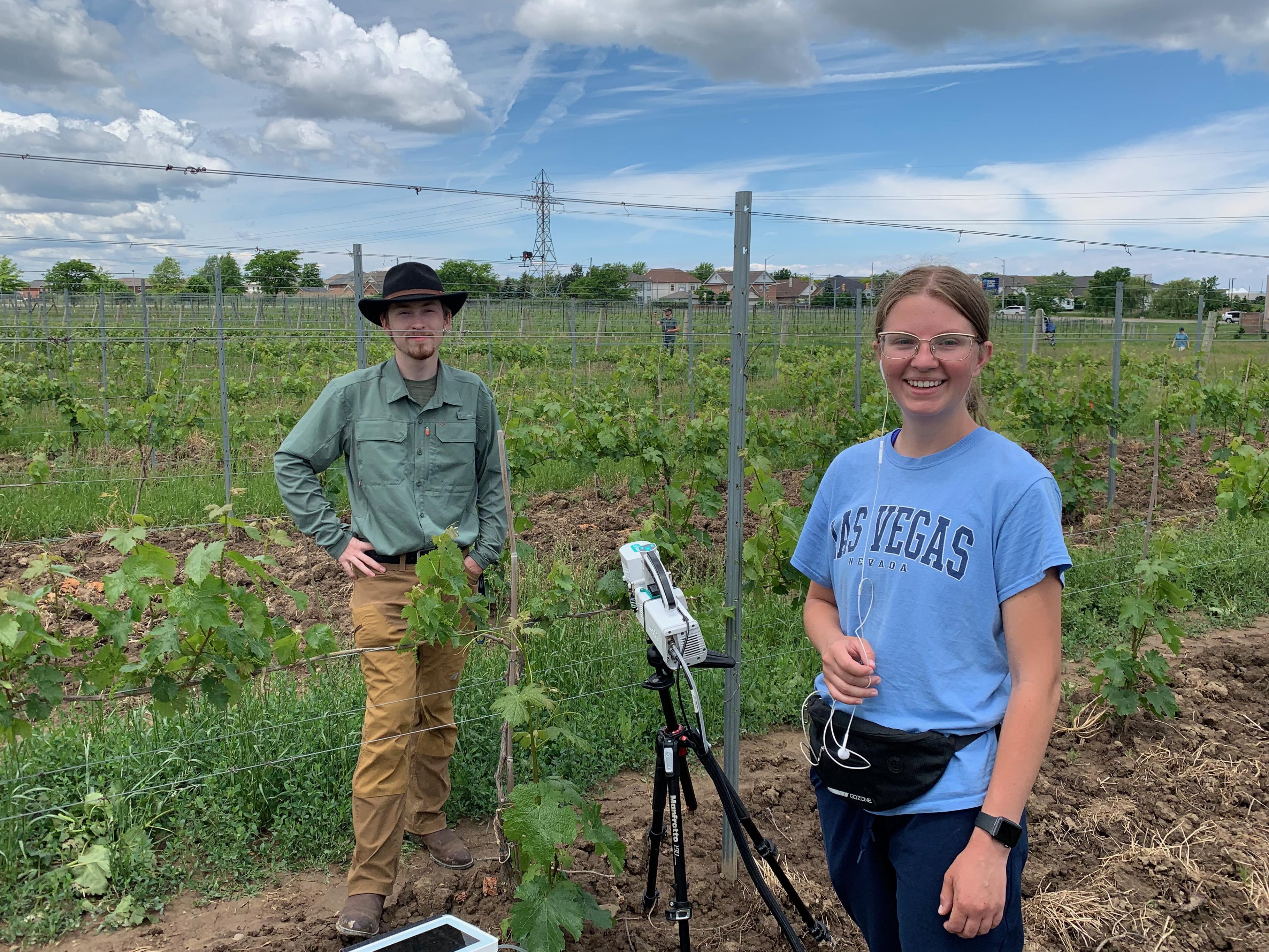Research Summary:
The Global Environmental Change Lab, led by Dr. Adam Martin, works within the SF3’s Agroecology and Agrobiodiversity module. Their research evaluates crop- and agroecosystem responses to environmental change, where we aim to better understand how different crop species and varieties respond to environmental stressors including changes in temperature, water availability, and atmospheric CO2 concentrations. While previous work was focused on coffee and soy agroforestry systems, their most recent work evaluates 1) biological differences across common wine grape varieties, and 2) how these differences underpin variety responses to environmental change. This work largely is focused on assessments of plant- and leaf-level physiology such as photosynthesis or water transport, and is now expanding into the areas of remote sensing of vineyard status and stress.
Recent Accomplishments:
Members of the group supported by the SF3 Cluster include Mitchell Madigan, an undergraduate researcher working in the area of vine temperature responses and remote sensing of vineyard heat stress (Image 3), and Emily Young, a Master of Science (MSc) student working in the area of leaf venation patterns in wine grapes and their role in moderating plant stress responses (Image 6). The SF3 Cluster also supported the research of Lauren Miller, a Master of Environmental Science graduate (MEnvSc, 2022) whose work focused on how photosynthesis in multiple wine grape varieties responds to elevated CO2 concentrations.
The research group has published our first set of studies supported by the SF3 cluster, including studies on how soil compaction influences wine grape physiological function (Martin et al., 2022), and how wine varieties differ in their leaf physiological, chemical, and morphological traits (Macklin et al., 2022). We have also recently published work evaluating how biofertilizers—a novel contribution to sustainable agriculture—influence the biology, growth, and yield of basil growing in hydroponic conditions (Martin et al., 2022).
Recent Publications:
Macklin, S.C., Mariani, R.O., Young, E.N., Kish, R., Cathline, K.A., Robertson, G. and Martin, A.R., 2022. Intraspecific Leaf Trait Variation across and within Five Common Wine Grape Varieties. Plants, 11(20), p.2792.
Martin, A.R., Mariani, R.O., Cathline, K.A., Duncan, M., Paroshy, N.J. and Robertson, G., 2022. Soil compaction drives an intra-genotype Leaf Economics Spectrum in wine grapes. Agriculture, 12(10), p.1675.
Martin, A.R., Mariani, R.O., Quadros, P.D.D. and Fulthorpe, R.R., 2022. The influence of biofertilizers on Leaf Economics Spectrum traits in an herbaceous crop. Journal of Experimental Botany.
Research Dissemination:
Members of the lab associated with the SF3 cluster, namely Emily Young, Samantha Macklin, and Rachel Mariani, recently disseminated their work on wine grape and tomato traits at the 2022 Ecological Society of America meetings in Montreal.
Additionally, Adam Martin has been leading public seminars in areas of broad scientific interest—namely the causes and predictions of climate change—at the Niagara-on-the-Lake public library. For more information, visit Lecture series on climate change offered at library.

